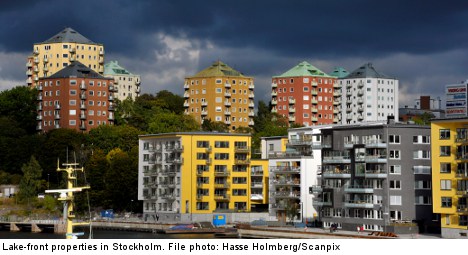Currently, the average cost of subletting a one-bedroom apartment in central Stockholm is 6,200 kronor ($950) per month, which is almost 1,300 kronor more than current rules allow.
The finding comes from an analysis of 71,000 subletting listings published over the last five years on Swedish buy-sell website Blocket and carried out by the Svenska Dagbladet (SvD) newspaper.
“This indicates that many people are charging illegally high rents today,” Terje Gunnarsson, chair of the Swedish Union of Tenants (Hyresgästföreningen) in Stockholm, told the paper.
“The conclusion is that those with centrally located apartments are trying to earn as much as possible.”
However, with a new law that kicks in on February 1st, property owners will be able to charge tenants rent in line with what it actually costs to own their homes.
The changes, approved by the Riksdag in December, are meant to boost the supply of properties available for rent by removing the current cap on how much flat owners can charge would-be-tenants.
Currently, flat owners cannot legally charge whatever they want, instead they are restricted to setting a “reasonable rent” (skälig hyra) tied to the average price charged for rental properties in the area.
That proviso means owners cannot set rent to cover the actual costs of ownership.
But with the new law in place, questions have been raised about just how high the rent prices can soar.
The Swedish Union of Tenants fears that, for example, that the cost of subletting a 42 square-metre apartment in the centre of Stockholm could double to 10,300 kronor.
“This would be a dramatic rise in relation to what is allowed today and affects those who live in a sublet home because they’re unsure of their place in the housing market,” the tenant union’s chief negotiator, Pär Svanberg, told SvD.
However, others welcome the changes.
“The subletting market has been too narrow, we need diversified growth and more homes,” Martin Lindvall, the Swedish Property Federation (Fastighetsägarna), told the paper.
He considers the current laws mean that many Stockholm home owners have chosen not to rent out their homes because the rent they receive wouldn’t have covered their costs.
“Most likely, there should be more housing now.”
TT/The Local/og




 Please whitelist us to continue reading.
Please whitelist us to continue reading.
Member comments